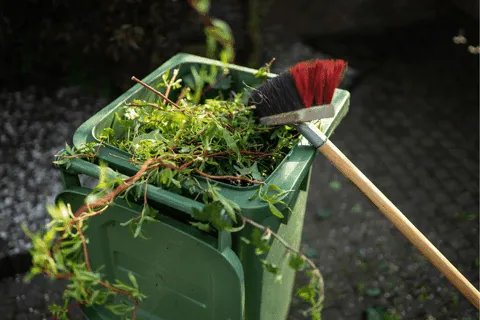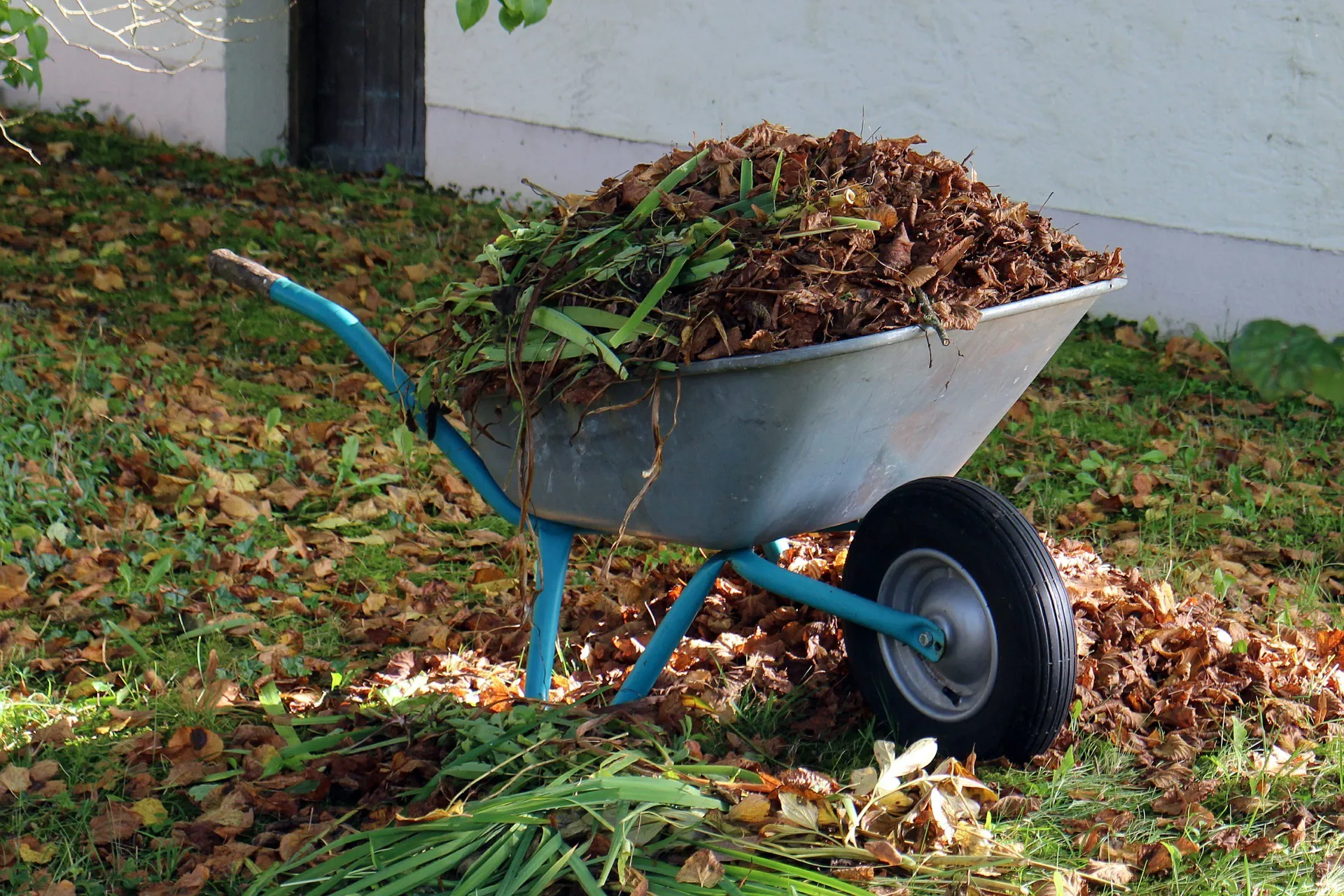The days are getting warmer, birds are nesting and flowers are flourishing. It's safe to say that spring is in full swing, which means it's time to get outside and start tidying up your garden.
But the job’s not over once you’ve finished pulling up weeds, clipping hedges and mowing the lawn. Because now you have a big pile of leaves, twigs and grass cuttings that you need to get rid of.

Garden waste represents about 21% of our household rubbish, which is more than our average kitchen waste. It includes stuff like twigs, weeds, hedge trimmings, leaves, flowers, wood chips and soil. If it isn’t disposed of in the right way, it can cause all sorts of problems for the environment.
Of course, businesses also generate garden waste. And if you’re a business, you have a legal obligation to keep waste to a minimum by doing everything you reasonably can to prevent, reuse, recycle or recover it (in that order). This means you must sort and store waste safely and securely, complete a waste transfer note for each load, ensure you’re a registered waste carrier and not allow the waste to be disposed of illegally.
What are the dos and don’ts of garden waste disposal?
DO:
- Separate the unwanted garden bits from your recycling and general waste.
- Reuse any items that you can, such as bricks, stones, twigs and wood. For example, can you repurpose twigs to make trellises, growing supports or even a bug hotel?
- Make your own mulch. Wood and bark can be shredded or chopped and used as a protective layer on your garden plants. Because the mulch suppresses weeds, this can save you hours of weeding. It’s also good for moisture retention, meaning less time spent out with the watering can or hose. Plus it protects the growing plants from wind and rain and deters slugs and snails.
- Make your own compost. In the UK, just over one in three households with access to a garden choose to compost their garden waste. Composting at home for just one year can save global warming gases equivalent to all the CO2 your kettle produces annually, or your washing machine produces in three months. It’s also great for your garden and it’ll save you money too!
- If you’re a householder, you can sign up for a green bin for garden waste from your local authority or from a recycling collection service, such as First Mile. We can collect your garden waste and ensure it’s turned into lovely, nutrient-rich compost for use across the UK.
- If you’re a business, sign up to First Mile’s food recycling service, which accepts plant waste as well as food leftovers. This prevents contamination of your mixed recycling bins, increases your company's recycling rates, helps the planet and will save money because food recycling bins or sacks are cheaper than general waste.
DON’T:
- Add garden waste to household rubbish. This means it could end up in landfill and contribute to global warming by releasing methane and other greenhouse gases.
- Dump it. Businesses or individuals who dump their garden waste can:
- Cause problems for local ecosystems. Garden waste often contains seeds that can grow and wipe out local plant life (think Japanese Knotweed).
- Block water systems. Loose cuttings and pieces of bark can drift into local water sources, leading to blockages in our water systems.
- Create a fire risk. Once the green waste dries out, all those twigs and leaves become perfect firelighters. - Burn it. Burning garden waste can create:
- Air pollution. The smoke releases harmful pollutants, including greenhouse gases such as carbon dioxide which add to global warming.
- Adverse health effects. Smoke and air pollution can have damaging impacts on people with asthma, bronchitis and heart conditions, as well as on children and the elderly.
- Nuisance to neighbours. Smoke stops neighbours from enjoying their gardens, opening windows or hanging washing out. It can also reduce visibility in the neighbourhood and on roads.
- Danger to traffic users. Under section 161A of the Highways Act 1980, anyone lighting a fire and allowing smoke to drift across a road faces a fine if it endangers traffic or causes injury.
- Fire safety risks and risks to wild life. Fire can easily spread to fences or buildings and, unfortunately, wild animals and pets often shelter in piles of dry leaves and twigs.
By choosing to reuse or recycle, you’re preserving our planet’s precious resources. In short, you are helping to create a greener, healthier planet for everyone!



